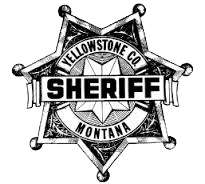cold CASE: HOw to develop an effective, low budget program
The Cold Case Foundation is pleased to acknowledge the efforts of departments across the country who work tirelessly on cold cases despite minimal resources. Our objective is to share tips, tools and programs that continue to move this important work forward. The Yellowstone County Sheriff's Department is a great example of scaling this work no matter what department size.
BACKGROUND: In November 2011, Yellowstone County Sheriff Mike Linder had an idea that would bring back-to-life a series of cold homicides that had been dormant for a number of years.
Linder knew these cases deserved attention and theorized that even a small law enforcement agency should be able to mobilize the manpower and resources to reopen and re-investigate cases that were still solvable. The question was…how to do it without adding to the payroll and still allow his Detective Division to handle its regular caseload at the same time?
Linder knew these cases deserved attention and theorized that even a small law enforcement agency should be able to mobilize the manpower and resources to reopen and re-investigate cases that were still solvable. The question was…how to do it without adding to the payroll and still allow his Detective Division to handle its regular caseload at the same time?
5 Steps to Create a Cold Case Unit for Any size Department
ASSESS & ANALYZE: Sheriff Linder asked his command staff to look for someone within the organization who might have the time and knowledge to review each unsolved homicide case and also investigate how a Cold Case Unit could be formed, staffed and structured.
A veteran Reserve Deputy had recently retired from his full-time media management position and the Sheriff asked him to step-up to the challenge. From December 2011 until April 2012, this Reserve Deputy reviewed all of the Sheriff’s Office’s unsolved homicides dating back to 1973 and classified each case by solvability factors. He then searched for other agencies and organizations which had already created Cold Case Units-- for advice on how to structure, recruit and interface with agency Detectives and command staff.
POLICIES & PROCEDURES: From this research, an organizational Chain of Command and CCU Policy and Procedure were developed, insuring compliance with departmental policies and state law. By design, the CCU Coordinator and all volunteers report directly to the Captain of Detectives. The CCU is housed in the Sheriff’s Office Detective Division.
Spare Detective interview rooms were utilized as CCU offices. Local businesses eagerly donated computers and office supplies. Twenty five retired investigators were contacted, with backgrounds ranging from retired police and sheriff’s detectives, DEA, ATF, Secret Service, County Attorney’s office and the US Attorney’s Office.
HUMAN CAPITAL: A retired Crime Analyst was secured as well as volunteers from the local Crime Prevention Center. In total, 14 out the original 25 contacted volunteered to help the CCU in some capacity. The Reserve Deputy who did the initial case review and CCU organization and recruitment was named CCU Coordinator to work with volunteers and interface with Detectives and command staff.
PUBLIC AWARENESS: In mid-April 2012, the Yellowstone County Sheriff’s Office Cold Case Unit was initiated. Cold Case Reports and PSA’s were broadcast on local media outlets to gain community support and interest, resulting in donations from local citizens as well as organizations.
Basic case information was placed on Facebook. A Cold Case Website was created and five half-hour videos were produced on selected cases, placed on You-Tube and linked to the website. All cold cases were entered into VICAP and other databases. Cases were re-organized into a new, more workable format and digitally scanned into Rack2file for easy reference by Detectives.
INVESTIGATE: Each volunteer investigator was classified as a Special Service Officer and assigned a case for review with two Detectives assigned to each case. Cold Case training for case reviewers and Detectives was enhanced with the former heads of the Wyoming State Crime Lab and Wyoming DCI providing training on DNA and evidence evaluation techniques.
Case Reviewers were asked to review each case with “fresh eyes” and unbiased viewpoints, looking for gaps and leads in the original case which may not have been thoroughly investigated. Lists of possible witnesses and Persons of Interest still in the area were created for interview purposes. All evidence in each case was re-evaluated, looking for items that could contain DNA that can now be tested with new forensic techniques.
NEXT STEPS: Following the review by Special Service Officers, Detectives continue to follow-up leads and information generated by the CCU. In addition, they try to implement the latest criminal investigation technology.
DNA samples have been taken from dozens of people involved in the original investigations. Through the use of volunteers, no additional manpower was required to create the Cold Case Unit and the unit’s effort to solve these cases continues on today.
DNA samples have been taken from dozens of people involved in the original investigations. Through the use of volunteers, no additional manpower was required to create the Cold Case Unit and the unit’s effort to solve these cases continues on today.
For More Information on how you might implement a program like this for your department, please contact the Yellowstone Country Sheriff's Office.

